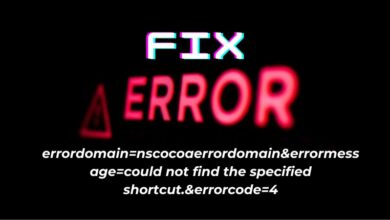
Table of Content
Epilepsy, more than a neurological condition, is a complex puzzle affecting diverse aspects of life. It’s a condition that demands a nuanced understanding and a multifaceted treatment approach. In this exploration, we aim to shed light on epilepsy, going beyond traditional medical treatments to include holistic management strategies. This blog post seeks to offer insights and practical advice for those living with epilepsy, as well as their families and caregivers. We’re here to explore how lifestyle, diet, and alternative therapies can work alongside conventional treatments to provide comprehensive care. It’s about empowering individuals with epilepsy to take control of their health and well-being.
Understanding Epilepsy
Epilepsy is not just a single condition but a spectrum of disorders with varying symptoms and severities. It’s essential to recognize that each individual’s experience with epilepsy is unique, requiring personalized care and management. Understanding the underlying causes of epilepsy, which can range from genetic factors to brain injuries, is crucial in developing effective treatment plans. Recognizing the signs and symptoms early can make a significant difference in managing the condition effectively. Knowledge empowers patients and caregivers alike, providing them with the tools to make informed decisions about care and treatment. It’s a journey of continuous learning, adapting, and managing the condition as effectively as possible.
The Role of Diet in Epilepsy Management
Diet can play a critical role in managing epilepsy, but it’s not a one-size-fits-all solution. Nutritional needs can vary widely among individuals with epilepsy, making personalized dietary planning essential. It’s important to work closely with a dietitian who understands the intricacies of epilepsy. Beyond the ketogenic and Modified Atkins diets, there’s growing interest in how gluten-free or low glycemic index diets might impact seizure control. It’s a field of ongoing research, offering new insights and potential dietary strategies for seizure management. Staying informed about dietary advancements is key for those looking to manage epilepsy through nutrition.
Lifestyle Modifications
The impact of lifestyle on epilepsy management is profound and often underestimated. Simple changes in daily routine, like maintaining a consistent sleep schedule, can significantly affect seizure control. It’s about creating a lifestyle that aligns with one’s health needs – one that acknowledges and accommodates the unique challenges of living with epilepsy. Understanding personal seizure triggers, whether they be certain activities, stressors, or environmental factors, is crucial in crafting a lifestyle that minimizes seizure occurrences. Regular consultations with healthcare professionals can help tailor these lifestyle modifications effectively. It’s about finding that delicate balance between managing epilepsy and enjoying a fulfilling life.
Complementary Therapies
Complementary therapies offer additional avenues of support in epilepsy management, often filling gaps left by traditional treatments. While they should not replace conventional medical treatment, they can certainly enhance it. It’s important to approach these therapies with an open but critical mind, evaluating their effectiveness and safety. Many people find that these therapies not only help manage seizures but also improve overall well-being. It’s essential to discuss these therapies with a healthcare provider to ensure they complement existing treatment plans safely. As more research emerges, the role of these therapies in epilepsy management continues to evolve and expand.
Medical Marijuana and Epilepsy
Medical marijuana, especially CBD, is becoming a key player in the management of epilepsy, especially in cases resistant to traditional treatments. The nuances of using medical marijuana, from dosages to delivery methods, are crucial for its effectiveness and safety. In West Virginia, the recent legalization of medical marijuana has opened new doors for people with epilepsy, providing them with another option in their treatment arsenal.
The process of obtaining a West Virginia medical marijuana card, while straightforward, requires patients to meet specific qualifications and adhere to state guidelines. Education about the responsible use of medical marijuana is essential, especially in navigating the nuances of its effects on epilepsy. Patients should have ongoing discussions with their healthcare providers to monitor the impact of medical marijuana on their epilepsy management.
For many, the option of medical marijuana offers a new sense of hope, particularly for those who haven’t found relief with other treatments. It’s important to consider both the potential benefits and risks associated with its use, including how it might interact with other medications. The experiences of other patients can be a valuable resource, offering insights into the real-world application of medical marijuana for epilepsy. Additionally, staying informed about ongoing research and evolving regulations is crucial for anyone considering medical marijuana as part of their epilepsy treatment plan.
The emotional and mental impact of epilepsy is as significant as the physical challenges. It’s not uncommon for individuals with epilepsy to experience feelings of anxiety, depression, or isolation. Effective management of epilepsy goes beyond controlling seizures; it includes addressing these emotional aspects. Mental health professionals who understand the challenges of epilepsy can be invaluable in providing support and coping strategies. It’s important to recognize and address these issues early, as they can significantly impact overall health and quality of life. Building a supportive and understanding community, both online and offline, can provide a sense of belonging and mutual support.
Epilepsy in Different Life Stages
Epilepsy’s manifestation can change over a person’s lifetime, necessitating adjustments in management strategies at different life stages. For children, balancing epilepsy management with average growth and development is key. For adults, the condition can intersect with careers, relationships, and lifestyles in complex ways. As individuals age, changes in health and medication efficacy can further alter the approach to epilepsy management. It’s a condition that requires ongoing assessment and adaptation, making regular consultations with healthcare providers crucial. Understanding and addressing the evolving needs at each life stage can lead to more effective and personalized epilepsy management.
Conclusion
Epilepsy management is a journey of discovery, adaptation, and resilience. Embracing a holistic approach opens up a spectrum of possibilities for better health and quality of life. We hope this guide provides valuable insights and empowers those living with epilepsy to explore various management strategies. Remember, managing epilepsy is not just about treating seizures; it’s about nurturing overall well-being and embracing life to its fullest.




